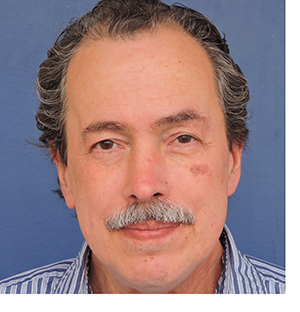 When it came to histories of Harrisburg and people of color, Rick Kearns discovered that libraries were the places for exploring the hidden corners that weren’t covered in school.
When it came to histories of Harrisburg and people of color, Rick Kearns discovered that libraries were the places for exploring the hidden corners that weren’t covered in school.
“That’s been the experience of many other people who were on a journey to learn,” says Kearns. “I went to good schools, but there were definitely things not being taught that I found out about in my research.”
Kearns, of Puerto Rican and European background, is the Harrisburg poet laureate. His work, “The Second Arrival of T. Morris Chester” helped inaugurate the reimagined McCormick Riverfront Library, with its T. Morris Chester Welcome Center honoring the 19th-century journalist, soldier, and civil rights activist.
“T. Morris Chester in the end, had no illusions but/still loved this country, and/never thought for a minute/that the fight/would ever end,” Kearns wrote.
Kearns discovered Chester in the late 1980s when a friend suggested him for a research project.
“Even to this day, we’re finding more stuff about this guy because he was this incredible character,” said Kearns.
What do you still love about libraries? Things have changed considerably, but libraries are places where people can still get work done. It’s also a safe space for people who are struggling. I have a lot of respect for the libraries and their open-door policies.
How does McCormick Riverfront Library fit into that new sense of libraries? Good Brotha’s Café will add another dimension of comfort and welcoming to the whole experience. Coffee and reading are old friends. I’m very glad about the T. Morris Chester Welcome Center and Research Collection and the space they’ve created to rediscover African American histories in Harrisburg and the region.
Why does recovering hidden histories matter? If we want to know the real story of our country and our city, we need to know these stories. I had already known about some of the realities of racism, but what I learned gave me a deeper understanding, a broader understanding of what really happened – the good, the bad, and the ugly. I’ve told other friends of color that Harrisburg has a long history of parallel paths. There has always been the presence of serious racism, along with a history of resistance and allyship that has fought against it. Knowing the full story has given me more appreciation of the city.
So, libraries are places for cultivating tolerance? Absolutely. I see libraries as being on the frontlines of the general fight for social justice. Especially now, when we see efforts to restrict reading materials and courses from curricula, libraries are on the front lines of those battles. They’re not backing down.




